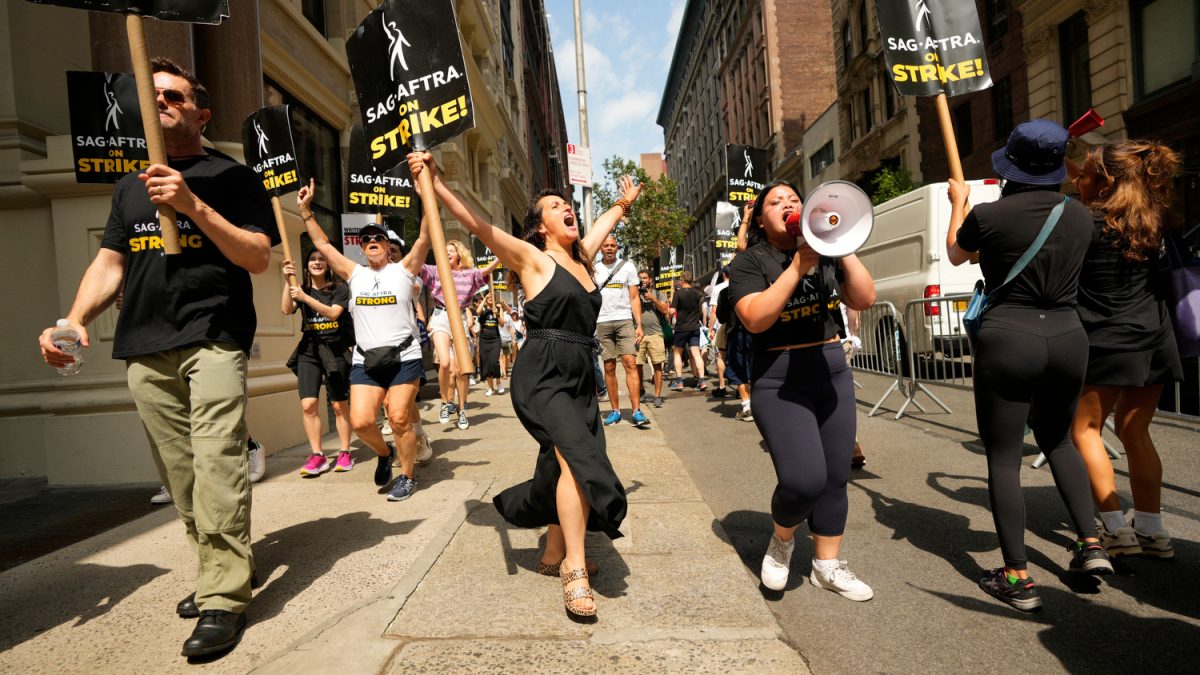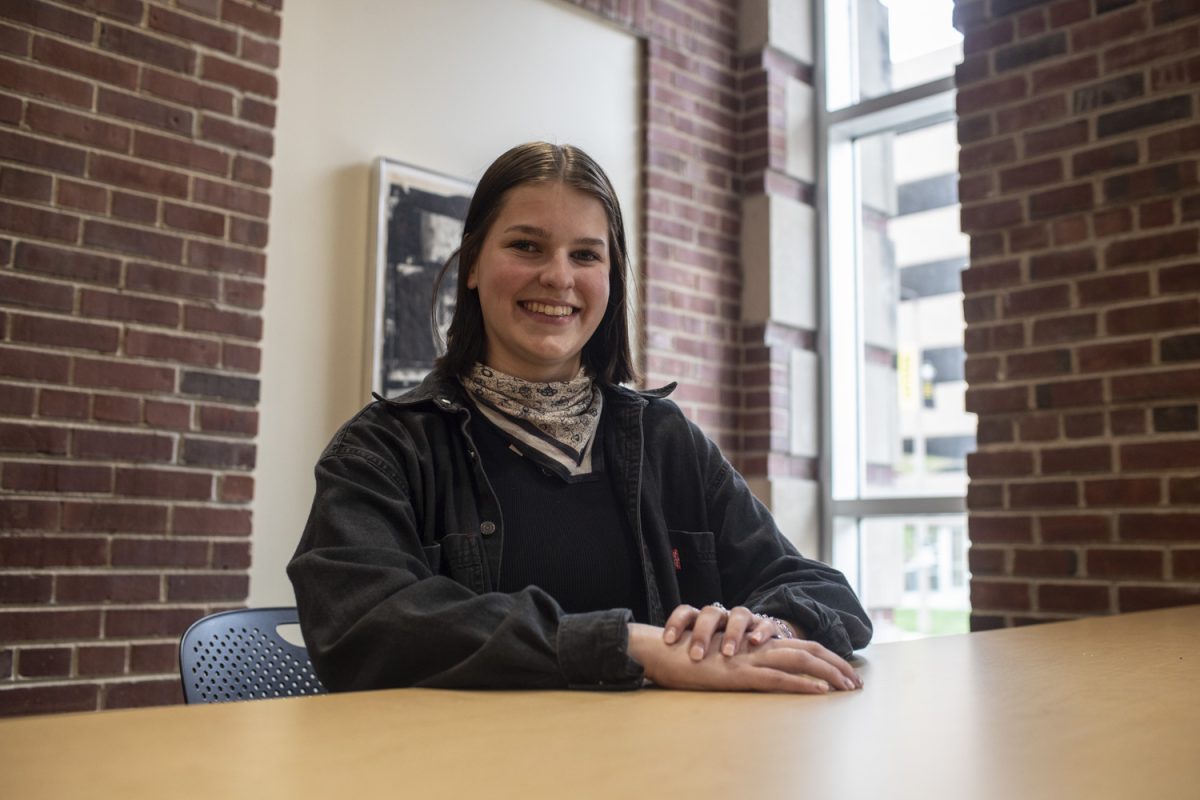When the Screen Actors Guild-American Federation of Television and Radio Artists strike was announced in solidarity with the Writers Guild of America strike on July 14, the actors walked out of the London premiere of “Oppenheimer,” and many productions were instantly shut down, leaving artists across Hollywood without work, and causing the cinema industry to come to a halt.
As the SAG-AFTRA and the WGA strike for better pay, increased residuals, and protections against artificial intelligence — the first time the two have combined since 1960 — the ripple effect can be felt within the University of Iowa film community among emerging filmmakers.
Many student filmmakers are a part of the Bijou Film Board, a non-profit, student-run organization dedicated to featuring independent, foreign, and classic cinema. Bijou, in partnership with FilmScene, has historically allowed countless student filmmakers the opportunity to be involved in the downtown Iowa City arts scene.
RELATED: FilmScene hosts ‘Barbie Boot Camp’
Bijou board member Alexandra Runnells has also grappled with the role of her artistry in the current cinema landscape. As an emerging filmmaker, Runnells said she believes Hollywood should invest in more original, independent artists.
“My experience, not necessarily with the industry, but with looking out on it is that the industry is much too localized and stuck on the aim to make the most money possible,” Runnells said. “With franchises such as Marvel, DC, and now Mattel, I find it incredibly degrading and demeaning to the rest of the writers whose personal, meaningful, and unique scripts were tossed out because Mattel and Marvel were able to pay millions more.”
UI faculty members also feel impacted by the unfair treatment of filmmakers. Chris Wei, an instructor and doctoral candidate in film studies, shared his concern for underpaid artists.
“I’m absolutely, unequivocally in support of the union,” Wei said. “Performers deserve dignity, and a pay raise that doesn’t keep up with inflation is effectively a pay cut…particularly performers whose labor is being extremely undervalued and under-compensated by streaming services.”
Wei said the strike has reaffirmed his solidarity with the unions.
“I don’t work in production, so the strike hasn’t affected my livelihood or career directly, but it has reminded me of the precarity all working people face, including graduate workers like myself,” he said. “It has re-invigorated my sense of solidarity with the workers. The damnable capitalist greed of the [Alliance of Motion Picture and Television Producers] is nothing new, and it’s nothing we don’t see elsewhere, but it needs to be put in check.”
Kat Trout-Baron is the executive director of Bijou, an aspiring screenwriter, and a third-year student at the UI. They are an active member of their local film community and agreed with the concerns of SAG-AFTRA and WGA.
“I was in my long-form screenwriting class when the WGA strike was announced. It was one of our last few weeks writing feature-length screenplays, and it was one of those moments where I felt very connected,” Trout-Baron said. “It was a very grounding moment.”
Trout-Baron also described the emerging threat artificial intelligence poses to screenwriters’ work and was a catalyst for the WGA strike.
“[AI] is very prevalent for us as young filmmakers and writers who are entering the industry. This will be a part of our work, and we won’t know anything but this,” Trout-Baron said. “We have never worked in an industry where AI wasn’t a threat. It’s a very new thing, and honestly, very scary.”
Currently, the studios and top executives of the film industry have not shown any signs of reaching an agreement with the WGA or SAG-AFTRA, leaving the future of the film industry — and all its effects — uncertain.







